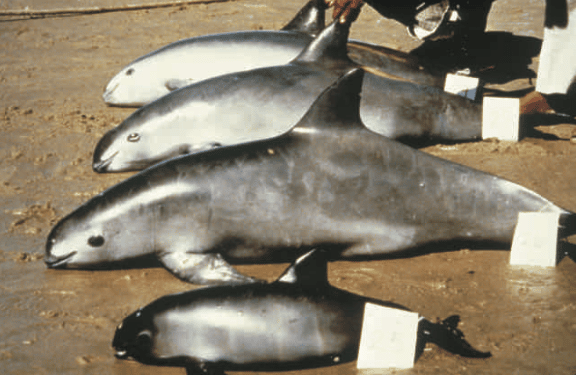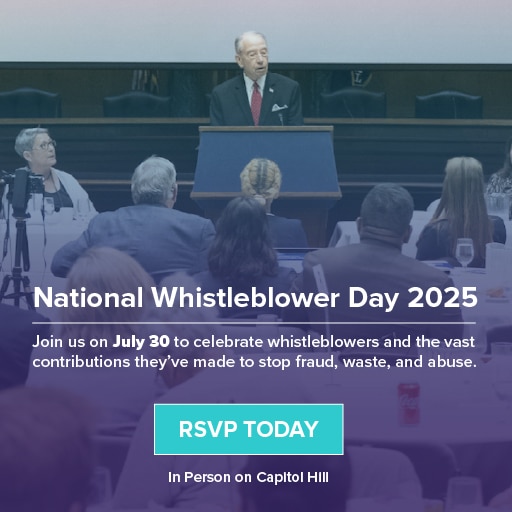Citizens and activists can help stop environmental crime, but they need to know which laws apply, how to collect evidence and when to get a lawyer.
Different approaches to the role of citizens in collecting and reporting evidence of environmental crime were discussed last week by a three panelists at the Environmental Law Institute in Washington, DC.
In many cases, there is no meaningful law enforcement to stop environmental crimes. That’s where citizens can come in.
By understanding how to collect evidence and navigate whistleblower programs, anyone can help enforce environmental laws. Anyone includes, NGO staff, those impacted by crime or insiders, such as cruise ship crews.
John Kostyack, director of National Whistleblower Center, talked about a range of existing federal laws with provisions that reward citizens who come forward with credible information about environmental crime. Shaun Goho of the environmental law clinic at Harvard Law School talked about how the courts are likely to interpret evidence and expert testimony. Stevie Lewis of the Public Laboratory for Open Technology and Science said the EPA has been slow to act on the recommendations in a 2016 report on promoting citizen science. But, her group hasn’t.
Kostyack started his talk with a slide of a small, endangered porpoise known as the vaquita, according to a video of the event.
“It’s really a fitting symbol of what we’re up against,” he said. “The forces that are driving this beautiful animal to extinction in its home in the Gulf of California are the same forces that are driving much of the environmental devastation around the world and those are the forces of crime.”
Environmental crime is highly profitable and there is an absence of meaningful law enforcement, he said. The vaquitas get caught up in the nets of fishing crews looking for totoaba, a fish that brings a high price in China, where its bladder is considered a delicacy.
Kostyack said persuasion and economic incentives –the tools conservationist routinely turn to — don’t really work in this context. But there are other ways to go after criminal cartels “and folks who commit crimes from corporate suites who are the ones who wear the suits and carry out corrupt activities on behalf of certain multinational companies.”
He went through a list of laws with whistleblower provision that can be effective against wildlife crime, including the Foreign Corrupt Practices Act (FCPA), which targets bribery of foreign government officials and the Act to Prevent Pollution from Ships (APPS). Using the latter, a whistleblower was able to provide evidence of illegal dumping by Princess cruise ships.
These whistleblowers are heroes, but they need to be aware of and protected from the inevitable blowback they will face, Kostyack said.
While it is not possible to completely eliminate risk, any decision about whether to step forward should include a discussion of how to minimize risk and maintain anonymity, he said. That means using the attorney-client privilege, taking advantage of encryption technology for communications and weighing the benefit of approaching the media.
Kostyack urged those considering this approach to consult a lawyer because whistleblower law can be extremely complicated.
Shaun Goho of the environmental law clinic at the Harvard Law School said evidence has to be collected by citizens in a way that will be accepted by the courts.
“If you bring you in case, you have to have some confidence in the reliability of the data that is the basis for your claim,” he said.
For example, courts may accept testimony from citizens who testify about visible pollutants or well-known odors, he said.
“Conversely, a court is more likely to say you need to be an expert if you’re talking about things like samples taken to measure invisible polluters,” Goho said.
Stevie Lewis of the Public Lab talked about how her group has been working with those affected by environmental crime. She urged others to build relationships with citizens based on equity and to honor different types of “expertise, local knowledge and experience.”
After working with local residents on the BP oil spill cleanup, the Public Lab staff considered how to duplicate and improve that approach. For example, environmental pollution challenges that people face can be complex. Many citizens lack access to tools and methodology because of the top-down nature of the scientific process, she said: “So, we… think about systems that are receptive to grassroots and round-up citizen data collection.”
The event was co-sponsored by the International Network for Environmental Compliance and Enforcement, Environmental Law Institute, and National Whistleblower Center




